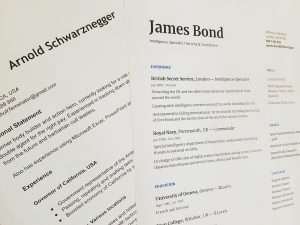Unfortunately, employers can’t take applicants at face value. We all know someone who has “embellished” their CV, adding a few grades to their exam results, or exaggerating their work responsibilities. If you’re desperate to land a job, it can be tempting. However, employers are increasingly running background checks on all new workers. And a recent survey among a Scottish recruiter has found that the number of applicants failing these basic checks has doubled.
What are Background Checks?
 Each employer will do different checks on people working for them. Some do no checks at all. Others spend a lot of time and effort on verifying what they’re told. At a basic level, employers will have to check the legal status of their workers. Fines are high for employing illegal workers. Employers can also ask workers to apply for DBS checks if the job requires it, or fact check CVs by calling around previous employers. The level of checking will depend on the level of responsibility. It stands to reason that companies will invest more time and effort in checking a senior member of staff then someone working in an entry level job. Most employers will be open and transparent about the types of checks they do.
Each employer will do different checks on people working for them. Some do no checks at all. Others spend a lot of time and effort on verifying what they’re told. At a basic level, employers will have to check the legal status of their workers. Fines are high for employing illegal workers. Employers can also ask workers to apply for DBS checks if the job requires it, or fact check CVs by calling around previous employers. The level of checking will depend on the level of responsibility. It stands to reason that companies will invest more time and effort in checking a senior member of staff then someone working in an entry level job. Most employers will be open and transparent about the types of checks they do.
Why do people fail?
There is a wide range of reasons why people fail background checks. The recent research identified the five most common reasons why people fail background checking.
- Lying about qualifications. This could either be inflating the grades you got at school or in Higher Education, or claiming you have a qualification which you don’t hold. Over a third of people who failed background checks were rejected for this reason.
- Discrepancies in employment. This covers people lying about the dates they worked for an employer, usually to cover up that they’ve had a period out of work. It also covers claiming extra responsibilities you didn’t have, such as listing yourself as a manager when you had no management responsibility at all.
- Gaps in employment. Having gaps on your CV isn’t a problem. But you should be able to explain that you were studying, on an extended holiday, job hunting or caring for family. Gaps which you can’t explain are a big red flag to employers.
- Financial problems. Some jobs, especially in the financial services, won’t employ people who have been declared bankrupt or who have unpaid CCJs. Don’t think you won’t be found out if you decide not to tell your employer when they ask.
- Criminal convictions. Again, these aren’t always an issue in themselves. The issue is more that the employer has asked the direct question about convictions and the employee states they have none. The employer then runs a DBS check, which throws up something the employee didn’t disclose.
Advice for Applicants
It sounds very simple and it is – don’t tell fibs. Don’t be tempted to change that C in GCSE Maths to an A. Don’t claim you managed a team of 10 when you didn’t. You will be found out, and lying on your CV calls into question your honesty and integrity.